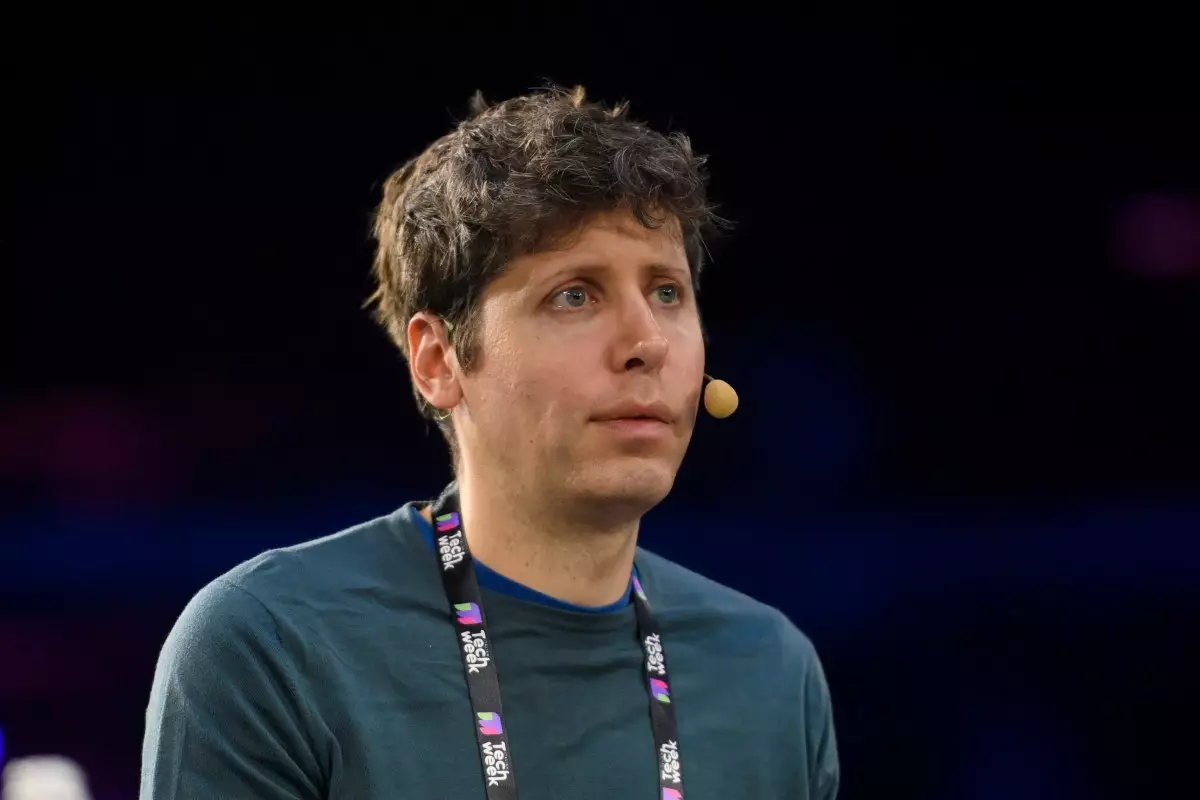In a significant rebranding move, Worldcoin, co-founded by Sam Altman, has shed its cryptocurrency label, now emerging as simply “World.” This strategic decision is indicative not just of a name change, but a broader ambition to evolve the startup’s identity and mission beyond cryptocurrency and into the vast possibilities presented by artificial intelligence (AI) and human verification.
Alex Blania, co-founder and CEO of World, acknowledged during a recent presentation in San Francisco that the previous name no longer resonated with their intended goals. The shift reflects an aspiration to establish a comprehensive identity that transcends financial transactions, suggesting that World is seeking to carve a distinct niche within the landscape dominated by cryptocurrencies.
World’s innovative approach centers around its advanced iris-scanning technology, referred to as the “Orb.” Initially, the eye-scanning process was primarily viewed as a means to access Worldcoins; however, the company has clarified that its intentions extend far beyond the realm of digital currency. The Orb is positioned as a tool for human verification, a response to an evolving digital environment where distinguishing between human and AI interactions is becoming increasingly difficult.
While the advancement of AI summons a range of speculative concerns, World aims to leverage its technology to perform necessary identity checks in a secure manner. By expanding its reach with the new version of the Orb, which promises enhanced speed and efficiency, the company seeks to democratize access to the services that AI can provide. However, skepticism remains prevalent regarding potential privacy dilemmas and the implications of such pervasive identity verification systems.
Despite the ambitious vision that World presents, skepticism from governments and regulators looms over the startup. Countries such as Kenya and various nations in the EU have expressed concerns about privacy, security, and the financial ramifications surrounding the operational model of World. Investigations remain ongoing, highlighting the delicate balance World must navigate as it strives for growth while addressing regulatory scrutiny.
As the company aims for a more extensive user base — aspiring to increase its pool of verified identities from 7 million to a significantly larger figure — it faces the challenge of convincing individuals to participate in their system. Trust is a precious commodity, and for many, the idea of allowing a cryptocurrency startup to handle their personal data raises red flags.
In its recent event, World introduced an array of innovations meant to facilitate wider accessibility and ease of use for its iris-scanning technology. Among the announcements was a partnership with Rappi, a leading delivery service in Latin America, to allow users to arrange home verification sessions via the Orb. This practical approach not only aims to mitigate barriers to adoption but also caters to the growing demand for convenience in technology.
Another noteworthy introduction was “Deep Face,” a service designed to counter online impersonation and deepfakes. By leveraging its human-verification services, World envisions enhancing video calls and virtual interactions, aiming to restore authenticity in an age inundated with synthetic media. Though further details on implementation remain scarce, these innovations signify a proactive approach to addressing some of contemporary society’s most pressing challenges related to digital identity and misinformation.
World’s ambitions extend beyond merely redefining identity verification. It has articulated a four-step roadmap aimed at redistributing the benefits of AI to the wider public. The first two steps involve developing the Orb and creating a distributed ownership network using blockchain technology. The focal point now shifts to the third step: scaling. Achieving this requires a massive increase in the number of iris scans performed globally.
Yet, despite these aspirations, obstacles remain prevalent. Upholding user trust while prompting individuals to authenticate their identities with a cryptocurrency-focused organization is a monumental challenge. The recent event showcased an instance in which World urged guests to present their government-issued IDs for verification — a move that emphasizes the inherent trust deficit rooted in skepticism about the motives of any organization associated with cryptocurrencies.
As World takes steps toward shaping a future where identity verification can coexist with the benefits of AI, it must grapple with significant questions of trust and ethics. The success of World in redefining how identities are validated in an increasingly digital world hinges on its ability to reassure potential users about the security of their data. With ongoing government scrutiny and prevalent public apprehension, the path ahead is neither straightforward nor guaranteed. Yet, if managed prudently, World’s innovations could very well play a crucial role in establishing a new standard for digital identity verification, bridging the gap between technology and user trust.

